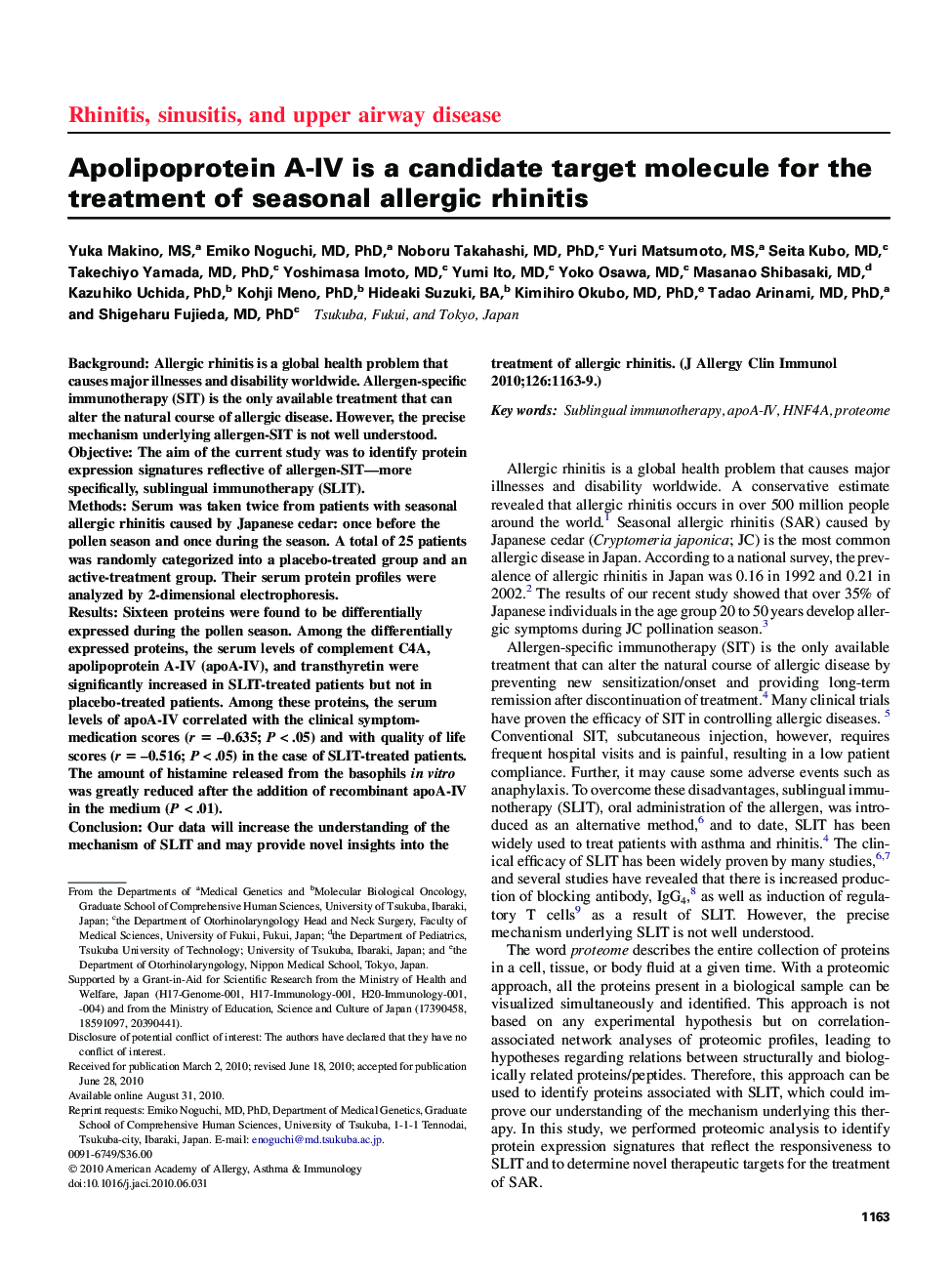| Article ID | Journal | Published Year | Pages | File Type |
|---|---|---|---|---|
| 6067429 | Journal of Allergy and Clinical Immunology | 2010 | 12 Pages |
BackgroundAllergic rhinitis is a global health problem that causes major illnesses and disability worldwide. Allergen-specific immunotherapy (SIT) is the only available treatment that can alter the natural course of allergic disease. However, the precise mechanism underlying allergen-SIT is not well understood.ObjectiveThe aim of the current study was to identify protein expression signatures reflective of allergen-SIT—more specifically, sublingual immunotherapy (SLIT).MethodsSerum was taken twice from patients with seasonal allergic rhinitis caused by Japanese cedar: once before the pollen season and once during the season. A total of 25 patients was randomly categorized into a placebo-treated group and an active-treatment group. Their serum protein profiles were analyzed by 2-dimensional electrophoresis.ResultsSixteen proteins were found to be differentially expressed during the pollen season. Among the differentially expressed proteins, the serum levels of complement C4A, apolipoprotein A-IV (apoA-IV), and transthyretin were significantly increased in SLIT-treated patients but not in placebo-treated patients. Among these proteins, the serum levels of apoA-IV correlated with the clinical symptom-medication scores (r = –0.635; P < .05) and with quality of life scores (r = –0.516; P < .05) in the case of SLIT-treated patients. The amount of histamine released from the basophils in vitro was greatly reduced after the addition of recombinant apoA-IV in the medium (P < .01).ConclusionOur data will increase the understanding of the mechanism of SLIT and may provide novel insights into the treatment of allergic rhinitis.
